A few days ago, I got an invitation from my friend Laura Brod to discuss the National Popular Vote initiative. Laura served several terms in the Minnesota legislature, rising to assistant GOP leader in her last two sessions (majority, then minority), and she has organized and served conservatives for her entire public career. Given that, I was a little surprised to hear that Laura backed the NPV. The proposal gets a lot of mischaracterizations; it doesn’t bypass the Electoral College, for instance, and since it relies on states voluntarily deciding to change how they allocate their Electoral College votes, it doesn’t violate the Constitution, either. My skepticism rests mainly on my perception that an NPV arrangement would mainly serve the interests of high-population, mainly coastal states — and solve a problem that has only arisen twice in the preceding 134 years.
After meeting with Laura and Pat Rosenstiel from Red Cap Strategy, I was still skeptical, but at least intrigued by their argument that NPV would benefit smaller-population states and limit the kind of pandering that helped create Medicare Part D, for instance, and other big-ticket federal programs. Laura wrote a brief essay for Hot Air introducing their case that conservatives should support NPV, and I’m curious to see how Hot Air readers respond. I’ll have more to say at the end of the essay.
======
Don’t Rush to Judgment: There is a Conservative Story to be told about the National Popular Vote
Recently there has been a lot of discussion in the news and blogosphere about the National Popular Vote Plan to guarantee the awarding of state electors to the candidate who wins the National Popular Vote in all 50 states. Unfortunately, there seems to be a lot of misstatements and rhetoric surrounding the issue.
I have recently read, due to passing of the bill in Massachusetts, that this is a “partisan” or even “liberal” effort. This could not be further from the truth. Just look at the experience and support of this legislation throughout the country with over 1935 supporting legislators from all political points of view across the political spectrum. In my home state of Minnesota, some of the most conservative members of our legislature are co-authors of the National Popular Vote Bill. In the recent New York Senate vote on the legislation; Conservative Party endorsed Republicans favored the bill by a 20-3 margin.
The National Popular Vote Bill is not a Democrat or Republican bill. It is not even a liberal or conservative bill. The National Popular Vote Bill is a bill for Americans interested in both preserving our Electoral College and reforming the shortcomings of our current “winner-take-all” system that awards all the electors of one state to the candidate who wins in that particular state and which has led to a concentration of efforts in few states at the expense of many.
Like many conservatives, I view most ‘election reforms’ through a skeptical eye. I share a reverence for the Constitution and our founding documents. In fact, when I first saw the National Popular Vote Plan, I defaulted to a “No” position on the concept. But, I was curious enough to read the legislation, re-read the Constitution, and re-read some relevant Federalist Papers. After evaluating the pros and cons of the current winner-take-all approach, I moved toward a position of support of both the concept and the legislation. This plan rightfully utilizes the states’ rights, as explicitly spelled out in the Constitution, for full authority to award their electoral votes as they see fit.
Article II, Section 1 of the Constitution says:
“Each State shall appoint, in such Manner as the Legislature thereof may direct, a Number of Electors… “
These words in the Constitution point out an important states’ right that the National Popular Vote Plan recognizes and, as a conservative, a right which I support.
Let’s be clear. The National Popular Vote legislation being voted on and supported by legislators across this great nation does NOT abolish the Electoral College that is crucial to the stability of our republic – it preserves the Electoral College and each state’s right to award their electors.
I am one of a growing number of conservatives who support the National Popular Vote legislation because, contrary to what some folks suggest in rhetorical opposition, the many conservative supporters of the idea know that the National Popular Vote Plan is not in conflict with the Constitution and not an end run around the Constitution. In actuality, the legislation is an exercise of power by the states that is explicitly granted through the Constitution.
Legislators across this great country—in red states and blue states, large states and small states— support this legislation because they are bound by one thing: the fact that their states are ‘flyover’ states. When 98% of all presidential campaign spending and visits occur in only 15 states, the great majority of states are effectively ignored in presidential elections. Legislators know this is not good for their state, their citizens, or their entire slate of candidates. Many conservative legislators from across the country have recognized that policies important to the citizens of ‘flyover’ states are not as highly prioritized as policies important to ‘battleground’ states when it comes to governing. And, over time we have seen too much profligate spending based on what moves electoral votes, rather than a real focus on holding spending and debt in check to ensure economic security and real economic opportunity for Americans.
I believe this is a center-right country and that our conservative ideas and ideals will win the day if we take the argument to all people, not just those in battleground states. We leave many conservative votes on the table in red and blue states because candidates are not competing for those votes. We allow greater opportunity for fraud because the cheaters know how and where to cheat to make one illegal vote equal many electoral votes.
I am one of the growing number of conservatives who support the concept of reforming our system through an agreement of the states for a National Popular Vote Plan that keeps the stability of our Republican form of government by preserving our Electoral College, keeps the checks and balances in place to ensure the protection against so-called mob rule, and keeps the states’ rights intended by the Founder’s securely intact.
The National Popular vote plan being discussed by legislatures across the country does exactly that.
As a conservative, I ask you to hold off on making a rush to judgment on this issue and hope you will consider all sides of the issue, judge for yourself, and not allow the rhetoric of the opposition too often lacking in hard facts to stand without question. Whatever side you come down on, one thing is certain; there is a conservative story in favor of a National Popular Vote to be told.
Representative Laura Brod (R-Minnesota)
Representative Brod has been in the Minnesota House since 2002 and is the Ranking Republican member of Minnesota’s House Tax Committee.
=====
Laura points out a good article from Rich Bolen, a Constitutional law scholar and a member of the Federalist Society, rebutting arguments against NPV, such as the basis of my skepticism, the impact on smaller states in presidential elections:
Objection: Won’t small states be ignored if we eliminate winner-take-all rules and adopt the National Popular Vote?
Response: No, because even in states that are reliably red or blue a bigger margin of victory or smaller margin of defeat can offset losses in other states. Candidates will work hard in states they will definitely win so they can get out more of their supporters to influence the total number of votes cast for them nationally. In fact, in strongly supportive states, candidates can get a better return for their campaign investment.
During our meeting, we spent quite a bit of time on this question, and I’m still not entirely convinced it will have the intended effect — but I’m more open to the point than I was previously. States like Utah, South and North Dakota, and Oklahoma are usually so overwhelmingly Republican that candidates don’t bother spending much time or effort there; the same is true for Democratic states like Vermont, Connecticut, and so on. Their winner-take-all EC policy means that if a candidate is more or less guaranteed to win it all without lifting a finger, then they won’t — because the margin of overall victory doesn’t matter. In an NPV system, every vote would count, and both parties will be forced to compete in smaller states to either maximize or minimize the eventual margin of victory — and that means every state will get attention.
Also, the NPV system would only “activate” under specific circumstances. If the popular vote winner doesn’t get the EC victory, then each state would have to fulfill their requirement under the interstate compact to allocate their EC votes to the popular-vote winner, and only if enough states have joined the compact to get to 270 votes. (Interstate compacts are perfectly legal, by the way, when they involve only powers properly held by the states — and allocation of Electoral College votes is completely a state’s decision.) But the possibility that an election will hinge on these outcomes will force candidates to campaign in all 50 states, NPV advocates argue.
I’m still at least somewhat skeptical. Adopting NPV essentially means that all presidential elections are popular-vote contests, which does make the EC less relevant while retaining its form and Constitutional finality. I’m not sure at all that the NPV will actually get candidates to spend time in smaller states, especially Democrats, who will use their GOTV votes in urban areas to build huge popular-vote leads in New York, California, and other coastal states in a cost-efficient manner that may not be replicable in exurbs or rural areas. However, the NPV advocates rightly note that the current system means fewer down-ticket resources applied in those areas in both parties because of the perceived lack of need for those votes now in national elections.
It’s worth debating, but given the relative lack of crises in the last 134 years, it will probably be difficult to move states into accepting such a change.

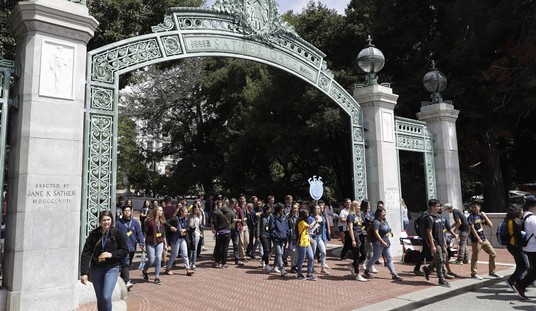
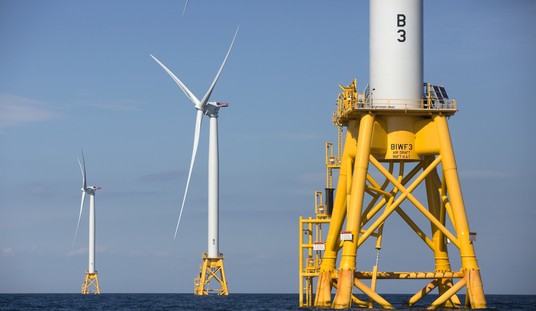
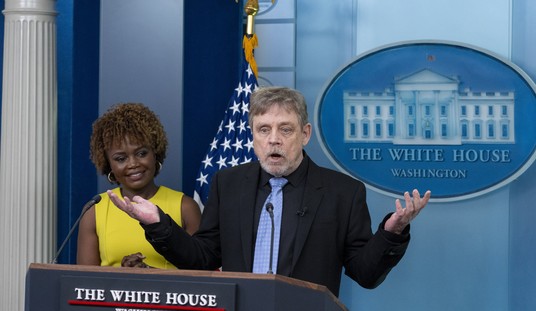

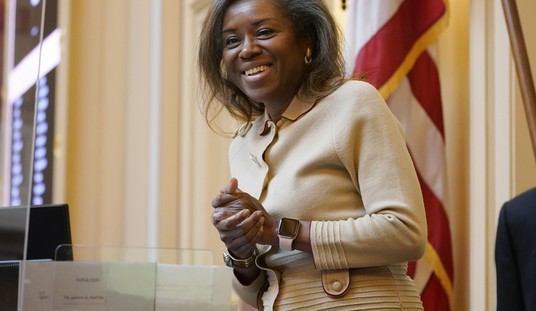

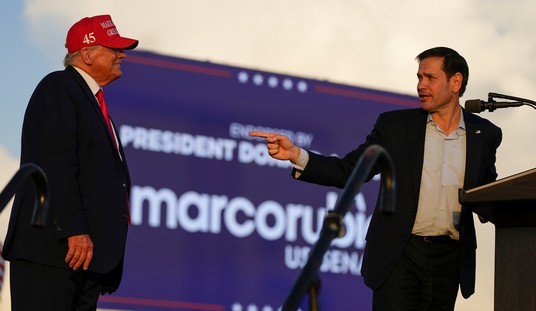
Join the conversation as a VIP Member